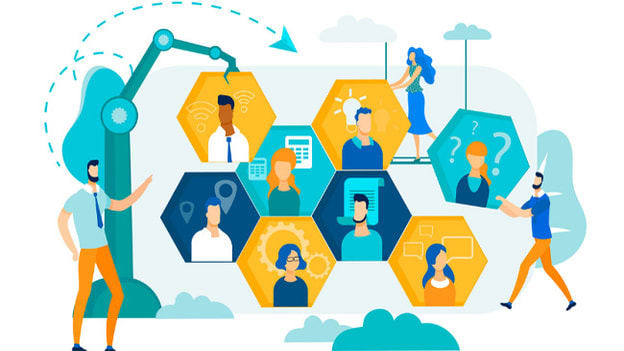The new paradigm: well-being for a new age workforce

Since the onset of the Covid-19 pandemic in March 2020, the world of work has fundamentally changed. And while a dictionary's concept of what constitutes an "office" has not yet evolved with the times, many businesses have been working hard to create new working environments that enable employees to thrive.
One reason why is because they are having to. Across a large number of industries, the Great Resignation or Rehiring has swung the pendulum in favour of employees’ requirements. Many organisations now know that they need to monitor attrition rates very closely, as they strive to improve their organisational reputation.
A recent Deloitte survey highlighted those younger workers in particular - from Generation Z and the millennials - want more of a work-life balance and long-term change. They are re-evaluating their priorities and expect more from their employers.
And companies are responding. The most recent EY 2022 Work Reimagined Survey revealed that a majority of respondents thought that their organisation’s culture had transformed for the better since the beginning of the pandemic. So too, 96% of companies reported that they have instituted changes to ensure the security and well-being of their workers.
One key shift has been the advent of hybrid working.
The pandemic forced many people to work from home and that is where a large number of them want to stay. So businesses are adjusting their policies to allow ‘work-from-anywhere,’ appreciating the value of employee flexibility and well-being.
But there is a long way to go.
A Mercer study, conducted in 2021, uncovered high levels of stress, anxiety, burnout, and fear among 10,000 US employees in companies employing more than 500 people. However, just over three-quarters of companies also said that they are making their employees' mental and emotional health a top priority over the next three to five years.
It is a similar picture in India where an Assocham survey, in late 2021, revealed that 43% of private sector employees are reporting mental health issues.
The most enlightened companies understand that employee well-being is something they have a responsibility to focus on. But they also know that it will benefit their bottom line too.
Happier employees are more productive ones. They will also be healthier since anxiety and depression boost the risk of many chronic and life-threatening conditions from diabetes to cardiovascular disease.
Focusing on prevention means that over the longer term, health insurance costs should fall. A Kaiser Family Foundation survey examining Employer Health Benefits found that in the US, 39% of companies have been modifying their health plans to increase access to mental health care since the beginning of the pandemic.
Companies are also placing a much greater emphasis on taking a proactive rather than a reactive approach toward the issue. In the past, most large- and mid-sized companies had Employee Assistance Programmes (EAP), providing access to hotlines and counsellors for staff members in need.
However, usage rates were often low. Many employees did not even realise such programmes existed.
In India, there was a noticeable shift during the second wave of the pandemic in April and May 2021. Companies reached out to their employees to support them through the crisis and employees turned to their companies for information and help.
As we come out on the other side of the pandemic, many companies have kept this good work up. They are now being far more proactive about highlighting the mental health and well-being services they offer and are actively destigmatising the issue.
Words such as “mental health disorders” are out. Instead, companies emphasise how everyone can improve their well-being no matter how happy they think they are, to begin with.
Newly-appointed well-being champions are the conduits for this evolving strategy. They are responsible for disseminating educational materials through their company’s internal communication channels. They organise events and workshops teaching resilience and the power of positivity so that employees have the tools to take control of their health and well-being.
Most importantly of all, however, they are forging an eco-system, which is embedding mental health and well-being deep into their company and its culture.
More companies are also training department heads so that they can differentiate between good and bad stress among their team members. Educational materials can only do so much. Ultimately, companies need managers with better EQ skills, attuned to far more than just output.
Over the past year, no area of life has undergone a swifter transformation than the way that we work. Employee expectations have shifted.
Companies that want to thrive are actively redefining their corporate cultures and what productivity means in a wider and more progressive sense. Mental health and well-being are fast rising on many corporate agendas. It is where they will stay.
















